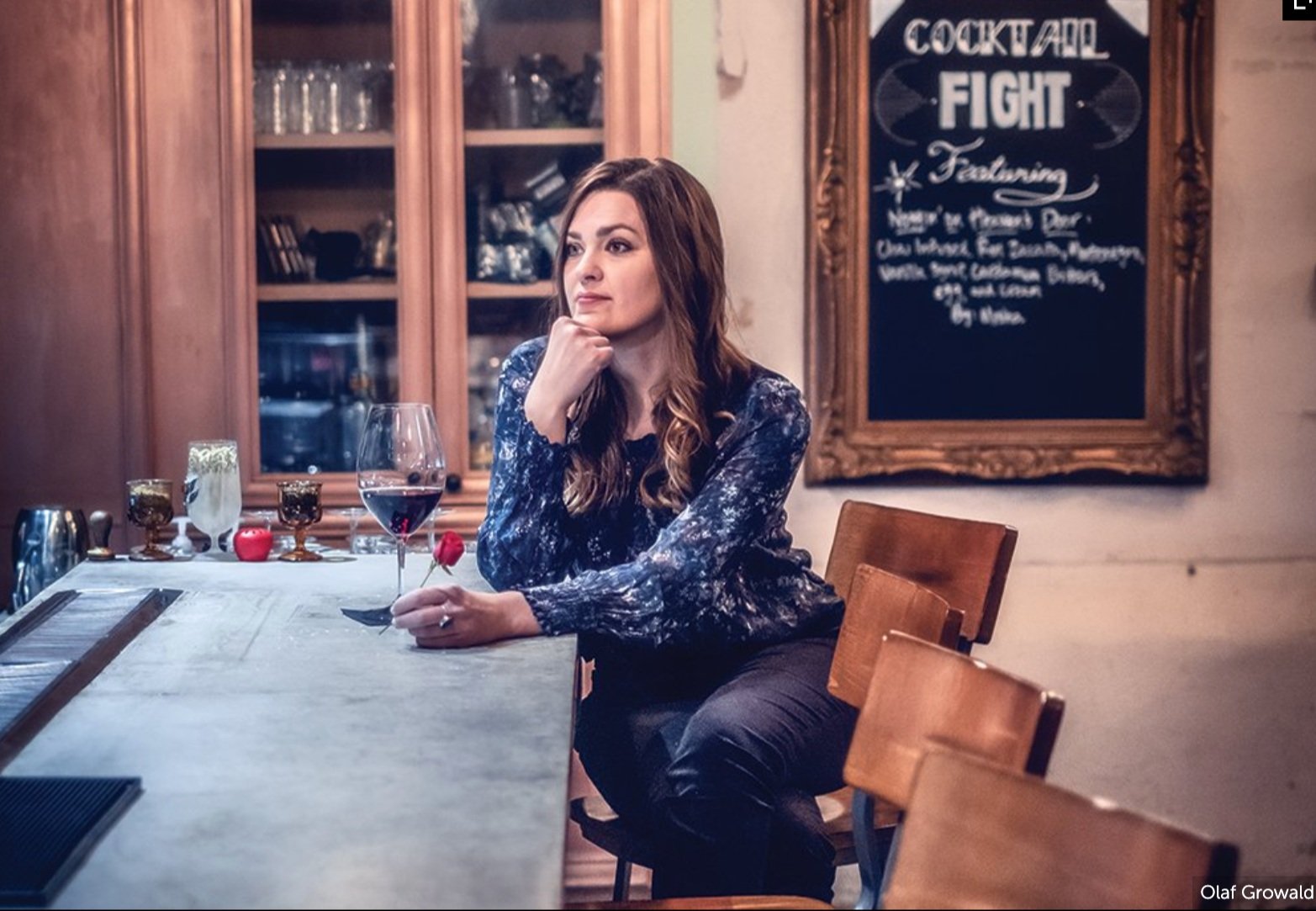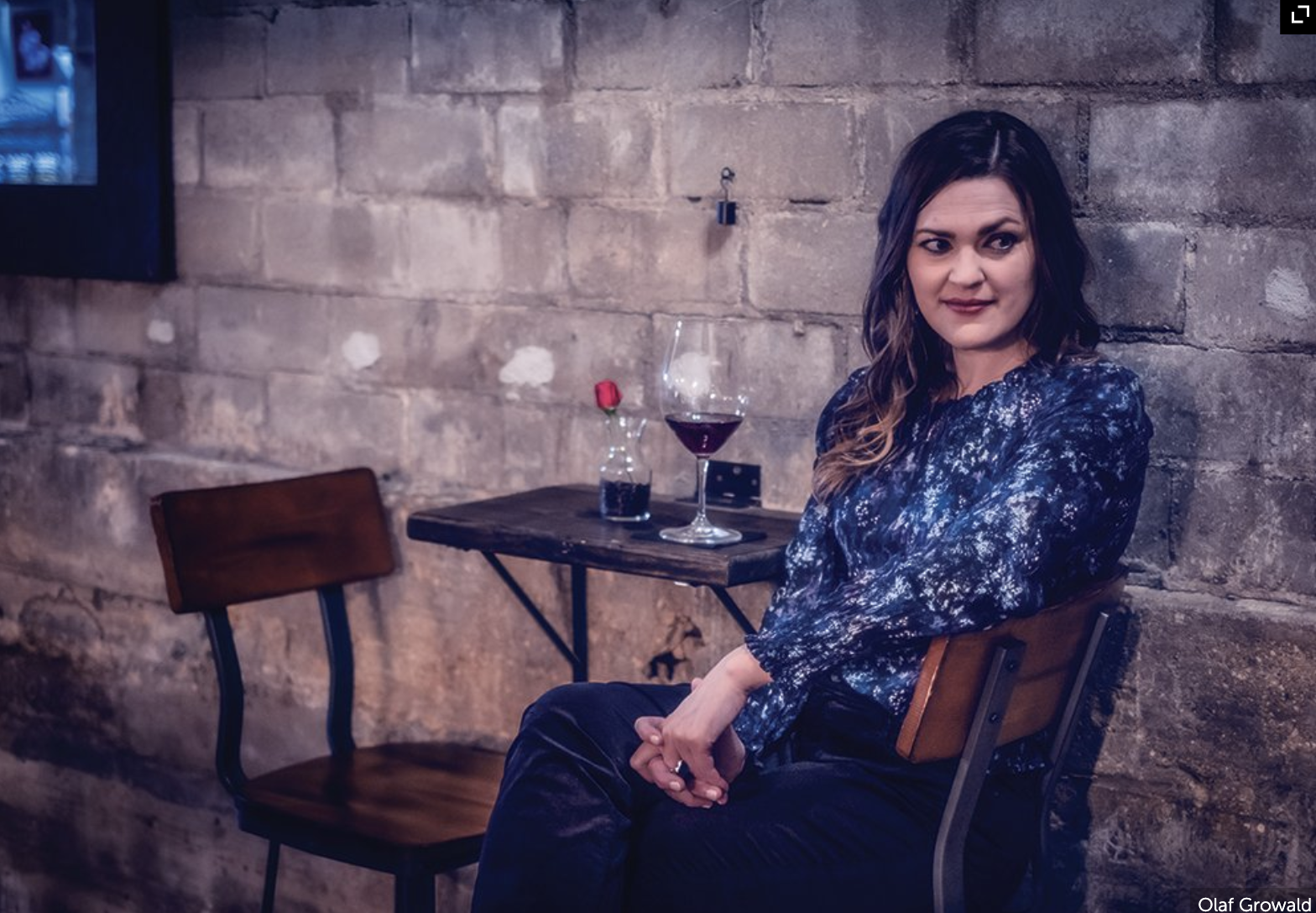Fort Worth Magazine: “Love, Life, and Dating in the Fort”
He’s standing outside the Modern Museum of Art in Fort Worth waiting for me. My hair is perfectly coiffed. Lipstick applied. Skinny jeans glued on. After six weeks of texting, calls, and shared life photos, we were finally meeting in real life: Bumble date No. 1 billion and one. He waves as I’m walking up from the parking lot. It’s sunny and he’s hard to see, but as I get closer to him, I feel good, and my anxiety starts to ease. He has on jeans (normal), button-down shirt (classic), and nice shoes (smart). Then, he opens his mouth: “Hello, Sarah. Nice to meet you.” My mouth drops. What I’d missed from the online photos, phone calls, and a failed Facebook search was an open-mouthed smile. He didn’t have any teeth.
“He didn’t have any teeth”
Well, to be fair, he had a few. They were sprinkled around an otherwise cavernous gumline, which almost made the missing ones even more prominent.
I’m sure my face was filled with terror. I looked at the door handle to the museum. I thought about where my car was parked and how quickly I could get there.
Then, I stuck out my hand and said, “Nice to meet you, too.”
Now, this was then — four years ago when I was much nicer, not nearly as experienced in the world of dating, and didn’t really know what I wanted in a partner or what a “partner” even was.
Also, I kept thinking: What if I didn’t have any teeth? I would still want somebody to date me. Hell — to love me.
This empathetic mantra ran through my mind the whole time we walked around paintings, sculptures, and photography. Not looking at his mouth was the only thing I was really concerned about. The artwork was a great escape from actual eye contact and conversation. Thank you, Modern Museum of Art.
After about an hour and a mental commitment to finish the afternoon, I decided I needed to make this date better for myself.
“Want to go to the bar?” I asked.
“Oh, definitely,” he said.
I’m guessing that was a faulty signal to him that I was enjoying myself because I wanted to get a drink. When really, I needed to dull my senses and try to create an out-of-body experience with the help of my friend, gin.
Sitting around a table at the bar of Café Modern, he started talking. I will say, he was delightful in some ways. We talked about where he was from. His job. His family. The art, which he said had a lot of “naked people” (not wrong). And then, he got to the elephant in the room:
“You might have noticed … I’m missing some teeth,” he said.
Now, luckily, I’ve had many college students tell me a lot of personal stuff over the years, and I’ve learned how to keep a straight face regardless of the subject matter.
“Oooooh … yeah,” I said, kind of looking off into the distance as if I’d just barely noticed.
“Well, I was in a motorcycle accident,” he goes on.
“I’m so sorry,” I said. “That must have been terrible.”
“Yeah,” he said. “It happened a year ago.”
A YEAR AGO? I’d be selling a kidney and getting implants the next DAY.
“But I’m going to get new teeth anytime now,” he said.
“Oh, that’s good,” I said. “I’m sure it’s been tough.”
At that point, he paid our bill, and we headed to the bathroom.
I’d kind of stopped noticing the missing teeth over the course of the afternoon — it’s like watching a car wreck that’s lost its luster. But I was more than ready to go.
Back from the bathroom, he asked, “Where are we going next?”
Again, I was not very smart. This was years ago. And I had no exit strategy. All I’d been doing the whole time was trying not to stare at his mouth where teeth should have been.
“Um, I need to go to Target,” I mumbled.
“Great, I’ll go with you,” he said, with a big toothless smile.
Shit. I’m going to have to say something honest.
“Well, actually, [stall, stall, stall, look at the ground, look at my hands, look at the wall] I don’t think we’re a good fit.”
He disagreed but respected my opinion and hugged me as we walked to our cars in the parking lot.
That day, I felt like God had spoken very clearly: Delete all your dating apps. You. Are. Done.
And that is exactly what I did as I sat in the car listening to the little voice inside my head, repeating my greatest fear over and over again:
You’re going to die alone.
You’re going to die alone.
You’re going to die alone.


I met the man I married when I was 17. We sat beside each other in government class at Haltom High School. He was dreamy in cutoff khakis, a wild Hawaiian button-down, and flip-flops. He didn’t care what the world thought about him, and that made me care about him even more; he walked those crowded high school halls with confidence and ease, towering above the sea of pimple-faced teenagers at a gorgeous 6 feet, 4 inches.
He was so many good things. But he wasn’t good for me. We used to talk about how we weren’t quite right for each other — not a “good fit.” We talked about it during our time together in college, we talked about it when we moved back to Texas and I was in graduate school, and we were still talking about it after we got engaged. Deep down, I knew he wasn’t right, but the fear of being alone — even then — held me back from ending it with him and trying to start a relationship with somebody new; the thought was terrifying. He was safe, secure, kind, and I didn’t know anything else.
Now, I know, that type of fear is engrained in our DNA.
“There’s a deep evolutionary wisdom for our desire to pair-bond,” says Dr. Sarah E. Hill, professor of psychology at Texas Christian University. “For this reason, it can be a very salient issue for people; it’s incredibly important in our lives.”
Hill says that having a partner or that “pair-bond” translates into what people have historically needed to thrive and survive.
“When we don’t have that [partner], our brains frame it as a survival threat,” Hill says. “This can also add to the type of anxiety a lot of people get when unpartnered.”
Biology is hard-wired, she explains, and human mating psychology is incredibly rich because it has been inherited from the brains of successful ancestors. “Evolution by selection.”
Women are naturally attracted to men who possess health, resource access, provisioning ability (think bringing home the bacon) and parenting potential, says Hill. Why? All this hypothetically helps create a more successful outcome for a woman’s children.
Men, evolutionary, have been attracted to signs of fertility like youth and beauty. A woman’s ability to provide for the family financially wasn’t a thing in the brains of our male ancestors like it is today.
So, what’s love got to do with it? Well, a lot.
Despite all of our evolutionary drivers, we still have choice, explains Hill. But it’s nearly impossible to change who you’re naturally sexually attracted to, she says.
“I think we need to be more compassionate with ourselves for this. We are attracted to who we are attracted to — these are qualities that would have historically let our ancestors reproduce.”
Many times, Hill says, women are told we’re too picky. But she believes that’s just not true.
“You can’t force it. I think this is especially true for women,” Hill says. “Women’s superpower is discrimination on male partners — we need to be aware of that and not listen to messages that say we are being elitist or bitchy or gold diggers, just because we have standards.”
Envision this: You’ve found a great guy or gal. Y’all met in the Whole Foods lotions and potions aisle discussing the merits of beeswax and organic lotion — um, dreamy. They’re kind, funny, smart, ambitious, and they even smell good, but you’re not sure the chemistry is there.
The sexual attraction between a guy and a gal is often there but sometimes simply needs some focus. Couples can create an experience for your body and mind by incorporating all of the senses. Light a candle, turn on music, and pay attention to the tiny details we sometimes rush past: What’s the taste of your partner’s skin. So, yes, sexual chemistry can absolutely improve.
It’s a lifelong exploration that ebbs and flows and changes with our bodies.
“A lot of factors go into strong relationships,” says Brad Nowlin, a marriage and family therapist in Fort Worth. “Friendship, respect, shared values, commitment, continued growth mindset, and positivity are really important in terms of repair and overcoming challenges together.”
But not all couples can successfully overcome these challenges, especially when there’s the added pressure of a two-year pandemic.
The divorce rate in the U.S. is about 43%, Nowlin says. And the past two years may have pushed those numbers up even higher, he says.
“I think the pandemic affected us a lot mentally and emotionally,” says Nowlin. “We had a four-layer stress cake with the pandemic, the political situation, race relations, and the snow situation in Texas. Stress affected everybody.”
He says it probably led to more anxiety and depression in relationships, which then affects the overall happiness of the couple and the family.
My own 11-year marriage to my daughter’s father was overshadowed by a decade of chronic depression. It eroded trust, killed emotional intimacy, and eventually led to major financial problems — and that was without a pandemic in the mix.

